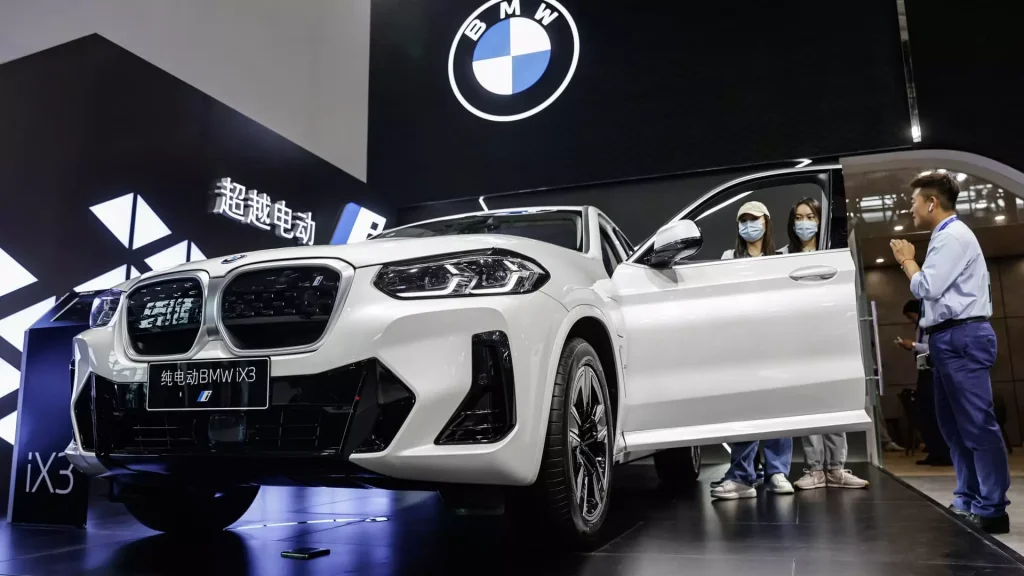BMW’s recent financial results reveal a stark reality for the automotive giant: a shocking 36.9% decrease in net profits for the year 2024, plummeting to €7.68 billion ($8.32 billion). This significant downturn correlates closely with “continuing subdued demand in the Chinese market,” which has rapidly become a crucial battleground for luxury car sales. The mere mention of China highlights an uncomfortable truth—markets can shift unexpectedly, leaving established players scrambling to adapt. BMW, a brand synonymous with performance and luxury, is clearly experiencing the ramifications of global economic turbulence.

Threats on Multiple Fronts
The outlook for BMW remains bleak, as the firm anticipates an earnings margin between 5% to 7% for their automotive division in 2025, a drop from the 6.3% achieved the previous year. The auto manufacturer has signaled potential setbacks due to various tariffs that could slice margins further. This predicament calls into question the feasibility of maintaining profitability amid rising operational costs and an increasingly competitive marketplace. Their forecasts account for numerous tariffs, including levies imposed on imports from the U.S. and penalties on trade with China, Canada, and Mexico. As global trade dynamics shift, BMW’s management grapples with a complex web of geopolitical uncertainty.
Targeting Core Issues
The narrative revealed in recent statements from the company, including insights from CFO Oliver Zipse, underscores a significant point: tariffs, once viewed as protective measures, seem ill-suited for our highly interconnected global economy. It’s compelling to witness a notable executive voice skepticism about the efficacy of tariffs as a competitive tool in today’s market. This critique reveals an upcoming conflict between traditional trade policies and the pressing need for innovation and adaptability within the automotive landscape.
Production and Supply Chain Obstructions
Compounding the situation, BMW’s delivery figures have taken a hit, dropping from 2.55 million units in 2023 to approximately 2.45 million last year. The decline can be largely attributed to supply chain disruptions, particularly stemming from a faulty braking system supplied by Continental. This incident alone should serve as a wake-up call for BMW and its peers. When manufacturing and supply chains face such vulnerabilities, the repercussions extend beyond sales; they threaten brand integrity and consumer trust.
Perspectives on Trade and Future Strategies
Looking forward, the dangerous mix of geopolitical issues and demand fluctuations in key markets like China necessitates a strategic reevaluation for BMW. As Zipse implied, the narrative for free trade is gaining momentum, challenging the validity of protectionist measures. BMW needs to devise a robust strategy that embraces innovation while navigating regulatory landscapes. The emphasis must shift from short-term fixes like tariff adjustments to a long-term vision that prioritizes resilience, efficiency, and sustainability—a necessity for any company aiming to thrive in a volatile market.

In the wake of these challenges, it’s imperative for BMW— and indeed all automakers— to engage in a serious reconsideration of their operational strategies to secure a foothold in tomorrow’s automotive industry.

